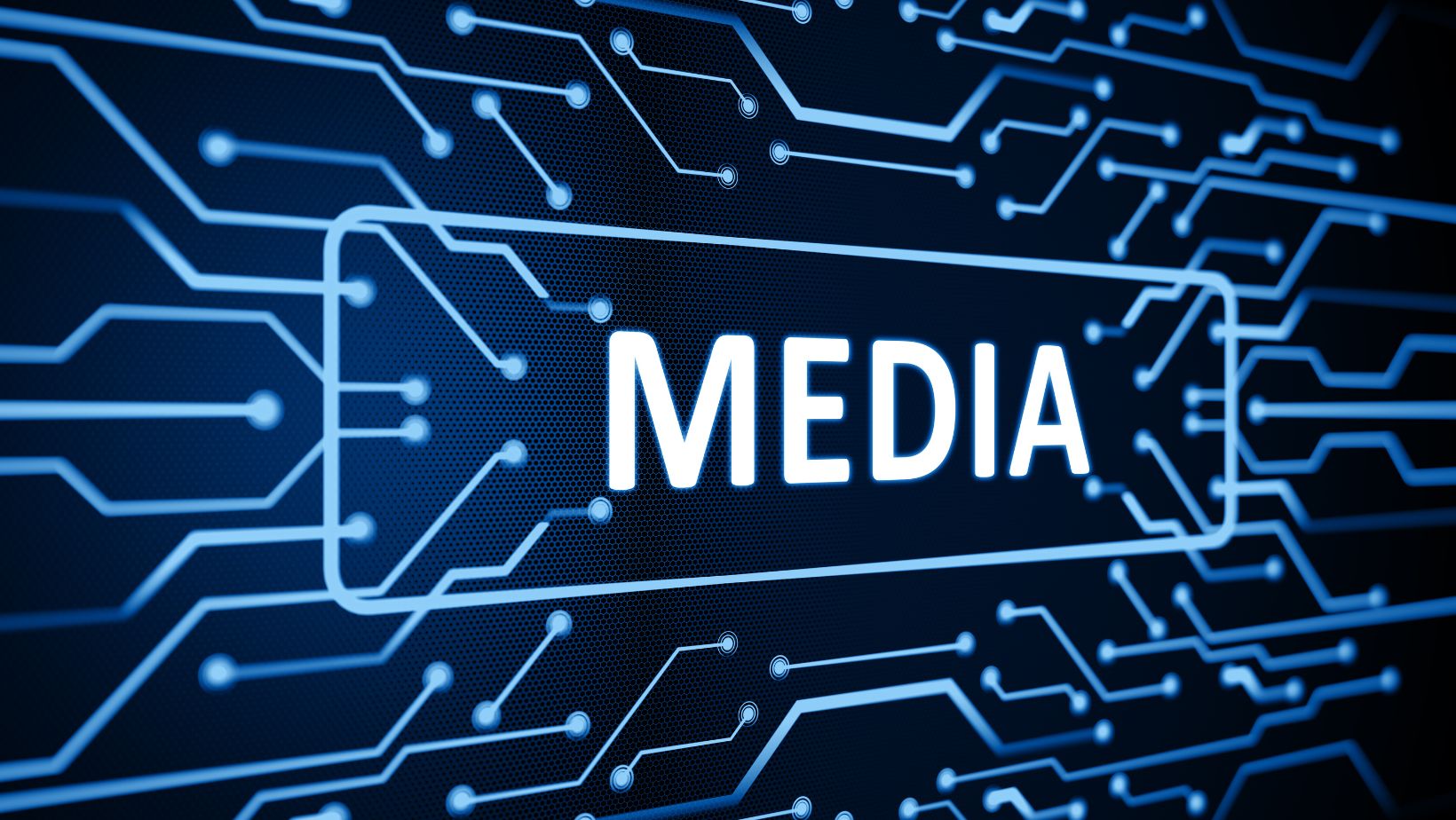Key Takeaways
-
- Transformation of Communication: New media has drastically changed how society communicates, promoting real-time interaction and user-generated content over traditional media methods.
-
- Cultural Shifts: New media enables global awareness and social movements, empowering users to advocate for change while also contributing to cultural homogenization.
-
- Online Communities: Digital platforms foster inclusivity and support through online communities, allowing individuals from diverse backgrounds to connect and share experiences.
-
- Challenges of Misinformation: The rapid spread of misinformation poses significant risks, requiring critical media literacy and enhanced moderation policies to safeguard public trust.
-
- Future Trends: Emerging technologies like VR, AI, and the growth of decentralized platforms highlight the evolving landscape of new media, emphasizing personalization and ethical consumption.
In today’s fast-paced digital landscape,
new media has transformed the way society communicates, consumes information, and interacts. Social media platforms, blogs, and podcasts have reshaped traditional media, giving rise to a more participatory culture where everyone has a voice. This shift not only influences personal connections but also impacts political discourse, social movements, and cultural trends.
As technology evolves, so does the relationship between new media and society. Understanding this dynamic is crucial for navigating the complexities of modern communication. From the rise of influencers to the spread of misinformation, new media plays a pivotal role in shaping public perception and societal norms. Exploring these changes reveals the profound effects new media has on daily life, making it an essential topic for anyone interested in the future of communication and community engagement.
New Media & Society
New media encompasses digital platforms that facilitate communication and content sharing. It evolves rapidly, impacting how individuals interact and access information.
Definition and Evolution
New media refers to platforms that use digital technology to deliver content. This includes social media, blogs, podcasts, and websites. The evolution began with the internet’s rise in the 1990s, leading to user-generated content and interactive engagement. Over time, new media transformed traditional communication methods, enabling real-time interaction and vast global reach. Users now play significant roles in content creation, shifting from passive consumption to active participation.
Types of New Media
New media includes various formats that cater to diverse communication needs:
-
- Social Media: Platforms like Facebook, Twitter, and Instagram allow users to connect, share, and engage instantly.
-
- Blogs: Websites where individuals or groups publish articles on various topics, facilitating discussion and interaction with readers.
-
- Podcasts: Audio programs available for streaming or download, offering insights and storytelling across countless subjects.
-
- Video Sharing: Services like YouTube and TikTok enable users to create and share videos, often resulting in viral trends and community building.
-
- Streaming Services: Platforms offering on-demand video and audio content, such as Netflix and Spotify, which reshape entertainment consumption.
Each type influences personal interactions and broader societal trends, reflecting the dynamic relationship between technology and communication.
Impact of New Media on Society

New media significantly reshapes communication, culture, and engagement. Its influence permeates various aspects of daily life, highlighting a transformative shift in societal norms and interactions.
Communication Changes
New media alters how individuals communicate and share information. Instant messaging, video calls, and social media platforms allow real-time interaction across geographical boundaries. Traditional media outlets face competition from citizen journalism and user-generated content, leading to an information democratization phenomenon. Increased accessibility fosters diverse voices, but it also introduces challenges like the rapid spread of misinformation. Engagement through comments, likes, and shares promotes participatory dialogue, connecting users and enabling a more interactive exchange of ideas.
Cultural Shifts
New media fosters significant cultural shifts. It creates global awareness of social issues, empowering movements such as #MeToo and #BlackLivesMatter. Users leverage platforms to advocate for change, mobilizing support through viral content. The rise of influencers transforms marketing strategies, blending entertainment with brand promotion. Trends spread rapidly, impacting fashion, music, and lifestyle choices. Despite the positive aspects, new media also contributes to cultural homogenization, where local practices may diminish under dominant global narratives, altering traditional cultural expressions.
New Media and Social Interaction
New media has significantly transformed social interaction, fostering unique connections and reshaping online communities. Platforms like social media enable diverse engagement patterns, influencing how individuals connect with one another.
Online Communities
Online communities facilitate interaction among users with shared interests, creating spaces for dialogue and support. Users connect through forums, social media groups, and specialized platforms, fostering virtual relationships.
-
- Inclusivity: Online communities promote inclusivity by allowing users from various backgrounds to participate and share experiences.
-
- Real-time Interaction: Users engage in real-time discussions, enhancing immediacy and connection.
-
- Support Networks: These communities provide emotional and informational support, especially for marginalized groups.
-
- Content Creation: Users generate content, enriching the community’s collective knowledge and creativity.
-
- Crisis Response: Communities often mobilize rapidly during crises, coordinating responses and sharing important information.
Social Media Influence
Social media significantly influences personal interactions and societal trends. Its rapid reach transforms how individuals communicate and access information.
-
- Influencers: Influencers shape opinions and trends, creating a new dynamic in marketing and brand engagement.
-
- Information Sharing: Users disseminate news and opinions instantly, leading to both valuable insights and the risk of misinformation.
-
- Public Discourse: Social media platforms facilitate public conversations, fostering civic engagement and political awareness.
-
- Cultural Impact: Viral content can launch social movements, as seen with hashtags that rally support and awareness.
-
- Mental Health: Social media’s role in social interaction can impact mental health, as users navigate comparison and validation dynamics.
Challenges and Concerns
New media presents various challenges and concerns that impact society. Addressing these issues is essential for fostering a safe and informed digital environment.
Privacy Issues
Privacy concerns arise prominently in new media. Users often share personal information across platforms, leading to data breaches and unauthorized data access. In 2021, approximately 46% of Americans experienced some form of data breach. Additionally, companies frequently collect and monetize user data without informed consent. This lack of transparency can lead to identity theft and surveillance, notably as social media algorithms optimize content based on user behavior. Protecting personal information requires users to remain vigilant and aware of privacy policies.
Misinformation and Fake News
Misinformation and fake news proliferate rapidly through new media channels. Research indicates that false information spreads significantly faster than verified content on social media. In 2020, 57% of adults reported encountering misinformation while consuming news online. The ease of sharing content without verification fosters an environment where false claims can shape public opinion, influence elections, and undermine trust in credible sources. Combating misinformation necessitates critical media literacy skills among users, along with the implementation of stricter content moderation policies by platforms.
Future of New Media in Society
New media continues to evolve rapidly, influencing society in unprecedented ways. The following explores emerging trends and predictions surrounding new media’s future.
Emerging Trends
-
- Enhanced Personalization
Enhanced algorithms offer users tailored content based on their preferences and behaviors, increasing engagement levels and making digital experiences more relevant.
-
- Virtual and Augmented Reality
Virtual reality (VR) and augmented reality (AR) technologies are redefining user interaction. These immersive experiences provide new avenues for storytelling and community engagement.
-
- Decentralized Platforms
Decentralized media platforms are gaining traction as users seek more control over their data and content. Blockchain technology offers new models for ownership and monetization.
-
- Integration of Artificial Intelligence
Artificial intelligence (AI) applications improve content creation and curation processes. AI-driven tools enhance personalization and user engagement by automating interactions.
-
- Increased Focus on Mental Health
Platforms are becoming more aware of mental health implications, implementing features to encourage positive interactions and reduce harmful content.
Predictions and Speculations
-
- Rise in User-Generated Content
Increased user participation in creating and sharing content will continue, leading to diverse voices shaping narratives and challenging traditional media.
-
- Greater Regulation of Content
Stricter regulations and policies concerning misinformation and data privacy will emerge as authorities recognize the impact of unchecked content sharing.
-
- Shift Toward Ethical Consumption
Consumers are expected to prioritize brands and platforms that demonstrate ethical practices in their communication and social responsibilities.
-
- Evolution of Influencer Marketing
Influencer marketing will transform, focusing on more authentic connections between influencers and their audiences, as consumers grow skeptical of traditional advertising.
-
- Expansion of Digital Literacy Programs
Society will increasingly emphasize digital literacy, equipping users with critical thinking skills to navigate the complex landscape of online information.
Influence on Communication and Social Interaction
New media continues to reshape the fabric of society in unprecedented ways. Its influence on communication and social interaction is profound and far-reaching. As individuals navigate this dynamic landscape they must also confront challenges like misinformation and privacy concerns.
The rise of online communities and participatory culture empowers diverse voices while fostering connections across geographical boundaries. Looking ahead the evolution of new media promises further innovations that could enhance user experiences and promote ethical engagement.
Understanding these trends is essential for adapting to an ever-changing digital world. Embracing critical media literacy will be key to harnessing the benefits of new media while mitigating its potential pitfalls.
 New media significantly reshapes communication, culture, and engagement. Its influence permeates various aspects of daily life, highlighting a transformative shift in societal norms and interactions.
New media significantly reshapes communication, culture, and engagement. Its influence permeates various aspects of daily life, highlighting a transformative shift in societal norms and interactions.



